Science & Technology
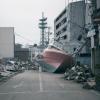 Associate Professor Shideh Dashti answered questions on the anniversary of the disaster. Her team researches the influence of extreme events on interacting soil-foundation-structure systems and the resilience of urban infrastructure.
Associate Professor Shideh Dashti answered questions on the anniversary of the disaster. Her team researches the influence of extreme events on interacting soil-foundation-structure systems and the resilience of urban infrastructure.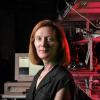 The inaugural season of Buff Innovator Insights, a new podcast from the Research & Innovation Office, kicked off March 18. In the first episode, we meet Margaret Murnane, a professor of physics and one of the world’s leading experts in ultrafast laser and x-ray science.
The inaugural season of Buff Innovator Insights, a new podcast from the Research & Innovation Office, kicked off March 18. In the first episode, we meet Margaret Murnane, a professor of physics and one of the world’s leading experts in ultrafast laser and x-ray science.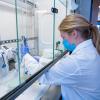 For nearly one year, a group of scientists and volunteers from across the university has met seven days a week, often sleeping just a few hours a night, to bring students back to campus safely.
For nearly one year, a group of scientists and volunteers from across the university has met seven days a week, often sleeping just a few hours a night, to bring students back to campus safely.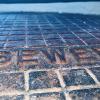 CU Boulder students are studying microbes in sewage systems to uncover secrets in human ecology. They looked at viruses, bacteria and more.
CU Boulder students are studying microbes in sewage systems to uncover secrets in human ecology. They looked at viruses, bacteria and more.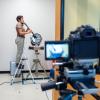 CU Boulder researchers have led the way in understanding the COVID-19 pandemic, helping to reveal how the coronavirus spreads through tiny droplets, the importance of flattening “the mental health curve” and a lot more.
CU Boulder researchers have led the way in understanding the COVID-19 pandemic, helping to reveal how the coronavirus spreads through tiny droplets, the importance of flattening “the mental health curve” and a lot more.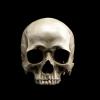 Matteo Mazzotti is the first author on two new studies that measure the dynamic response of the human skull, potentially providing a new and non-invasive way to monitor the cranial bone and brain. Mazzotti is a research associate in the Paul M. Rady Department of Mechanical Engineering as part of Professor Massimo Ruzzene’s lab.
Matteo Mazzotti is the first author on two new studies that measure the dynamic response of the human skull, potentially providing a new and non-invasive way to monitor the cranial bone and brain. Mazzotti is a research associate in the Paul M. Rady Department of Mechanical Engineering as part of Professor Massimo Ruzzene’s lab.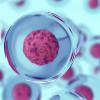 Kaitlin McCreery is the coauthor of a new paper that deals with diagnosing diseases such as osteoarthritis in soft tissue. McCreery is a doctoral student in the Neu Lab, where she studies the biophysical relationship between cells and tissues to gain insights about tissue development and pathology.
Kaitlin McCreery is the coauthor of a new paper that deals with diagnosing diseases such as osteoarthritis in soft tissue. McCreery is a doctoral student in the Neu Lab, where she studies the biophysical relationship between cells and tissues to gain insights about tissue development and pathology.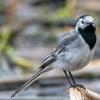 New research sheds light on the genetic underpinnings of plumage for a prominent Eurasian bird.
New research sheds light on the genetic underpinnings of plumage for a prominent Eurasian bird.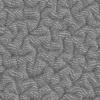 The new technology, called SLIP, mimics the structure of snake scales to create an ultra-slick surface.
The new technology, called SLIP, mimics the structure of snake scales to create an ultra-slick surface.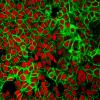 New findings that provide important clues to the long-standing mystery of where bodily tissues get their strength could also lead to more life-like artificial tissues and tumor busting drugs.
New findings that provide important clues to the long-standing mystery of where bodily tissues get their strength could also lead to more life-like artificial tissues and tumor busting drugs.


